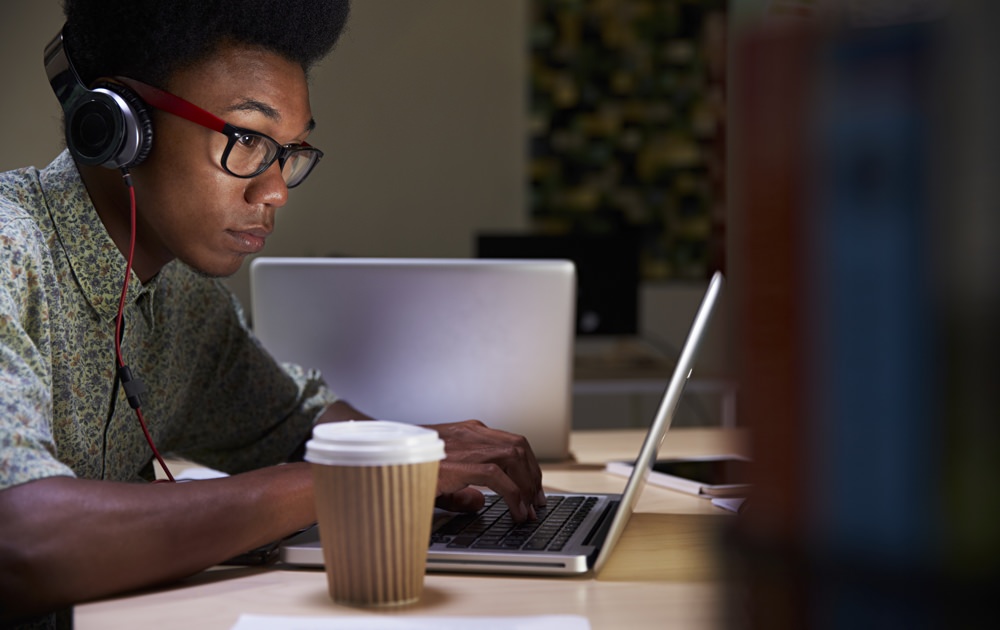Mind Over Matter
The tips and tricks to master meditation in order to think clearer, relax and even get better results at the gym.
Quit mindlessly surfing and scrolling to achieve your goals

Now maybe more than ever, it's hard to focus your attention and get down to business. Tell us if this sounds familiar: you sit down to do some work, but before you get started, you check your social media accounts. Maybe you comment on a buddy's Facebook post or retweet something. Somehow you end up on Reddit, then some random subreddit and before you know it, you've spent the last 25 minutes trapped in a Wikipedia K-hole all before you've given one thought to what you actually sat down to do. How does this always happen? Good intentions quickly turn to glazed-over eyes because of the distracting nature of the web and technology. Researchers theorize that evolution has developed our brains to constantly scan our environment for changes. When a change is sensed, we immediately direct our attention towards it. For our ancestors, that might've kept us safe from predators. But with today's constant stream of stimuli, it means we have real trouble focusing on the task at hand. But that doesn't mean you can't overcome the distractions.
You're likely aware of which websites you're wasting time on. But you might be surprised by just how much time gets sucked by them day after day. Services such as RescueTime or browser extensions like Chrome's Time Tracker help you understand your daily habits and give a clearer picture of your surfing history. Once you've got your list of offending sites, block them (at least during the hours you'd like to be productive) with site blockers. These browser plugins offer distraction-free time by preventing such sites from even loading. A few of our favorites are Focus for Mac, LeechBlock for Firefox, ColdTurkey for Window and FocusMe for both Windows and Mac.
Humans are wired to seek completion. Psychologists call it the Zeigarnik effect, after an early-twentieth-century Russian psychologist who discovered that once people began an assigned task, they would almost always see it through, even if interrupted.
Sometimes you just don't have it in you to focus. And what might feel like procrastination, could be considered recess by our brains. Sandra Bond Chapman, Ph.D., a neuroscientist and director of the Center for BrainHealth, explains that our neurons will naturally want to work hard, but then chill for a bit. Periods of productivity tend to come and go in waves and we need to embrace them. For some, focus may peak in the afternoon, while others notice a spike early in the morning. Once you know when you work best, build some walls around it. "The most productive people spend their brains' 'prime time' on one or two higher-order tasks, rather than let lower-level tasks gobble the day," says Chapman.
If you really want to quit screwing around and get down to work, consider a work-only computer. That means either blocking social media and other time-sucking sites with apps like Focus or simply not signing into them so it's easier to avoid clicking over to check them. Don't install stuff like games or chat clients and remove any time-wasting bookmarks. Transfer all those distractions to your tablet or another computer.
No seriously. A 2012 study in The Journal of Nutrition found that even the most mild dehydration—which could be so slight you don't notice feeling thirsty—can lead to lower cognitive performance, making it hard to pay attention. When you're distracted, you'll start meandering around the web looking for something—anything, really. So make sure you've got a glass of water handy when you're ready to work.
Humans are wired to seek completion. Psychologists call it the Zeigarnik effect, after an early-twentieth-century Russian psychologist who discovered that once people began an assigned task, they would almost always see it through, even if interrupted.